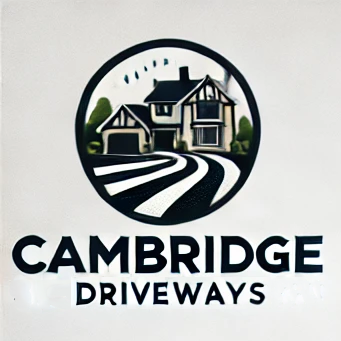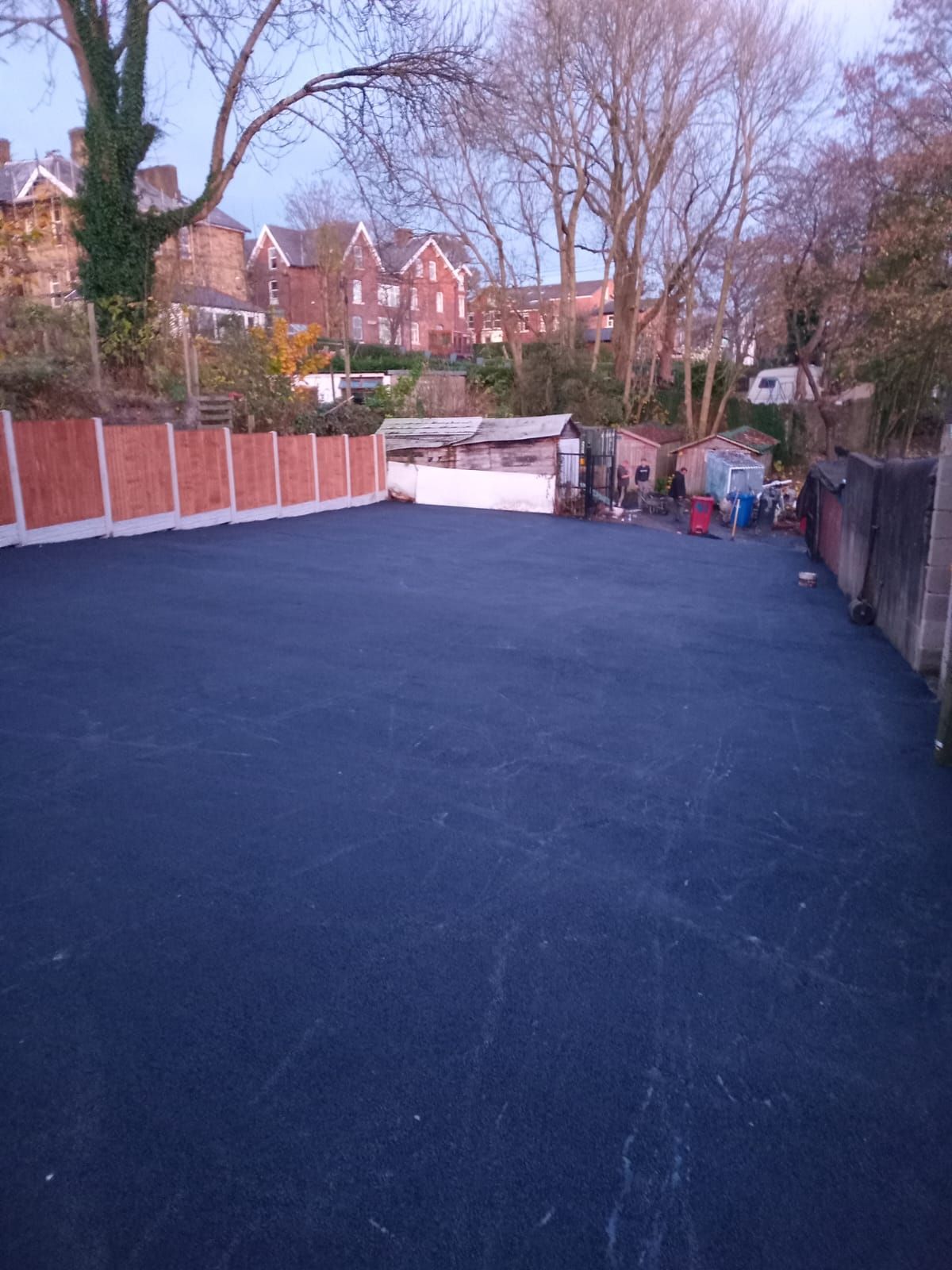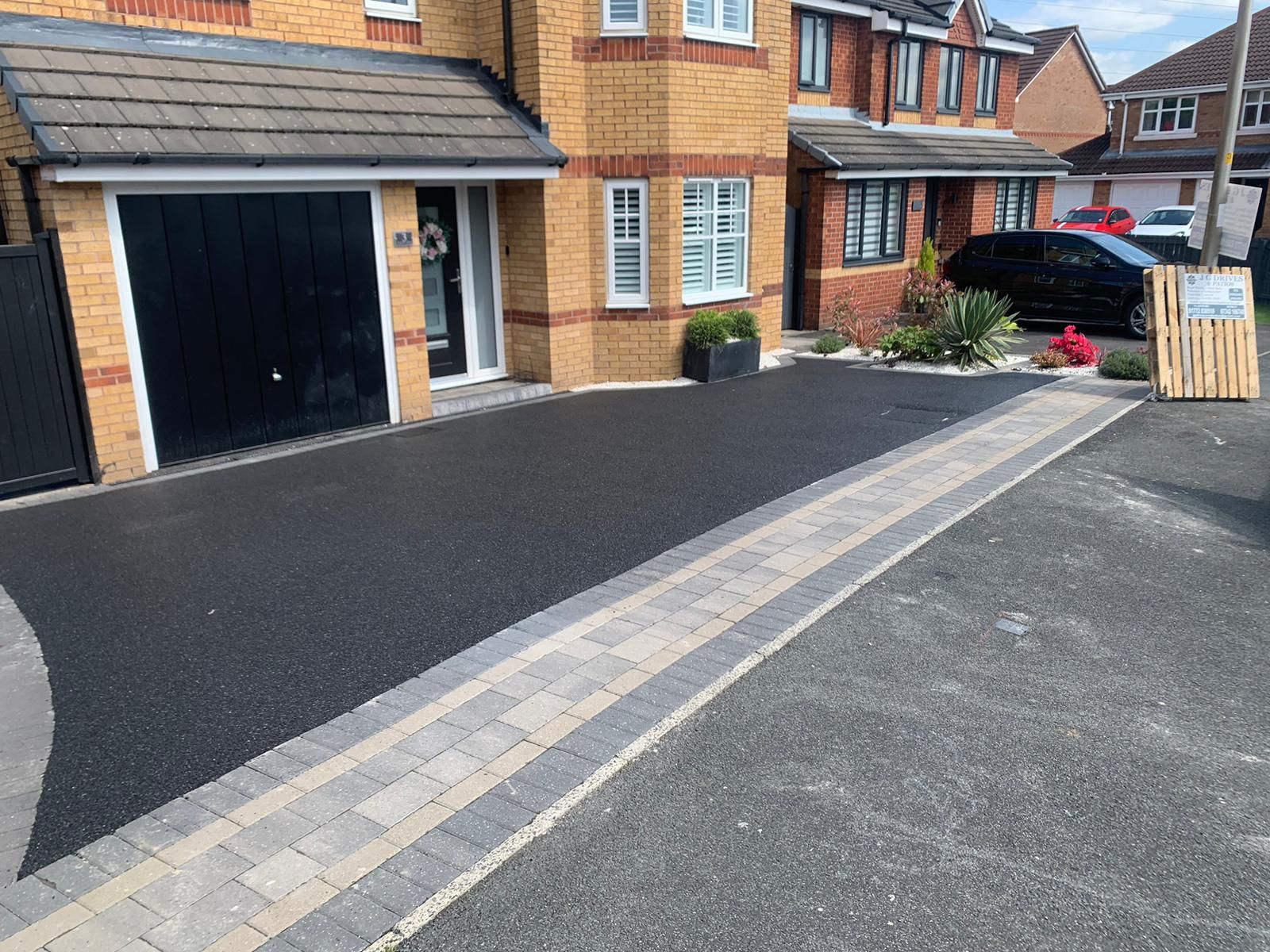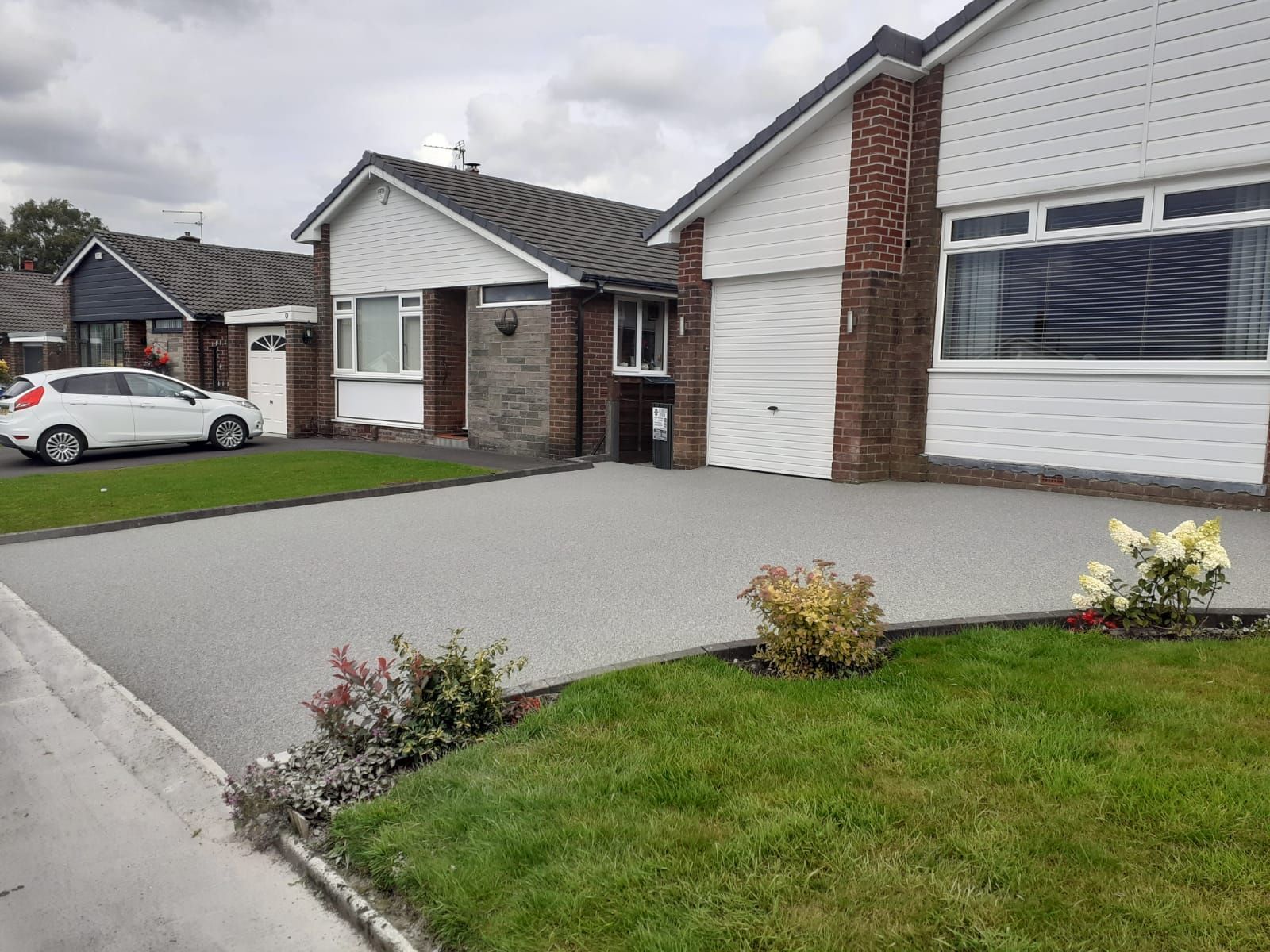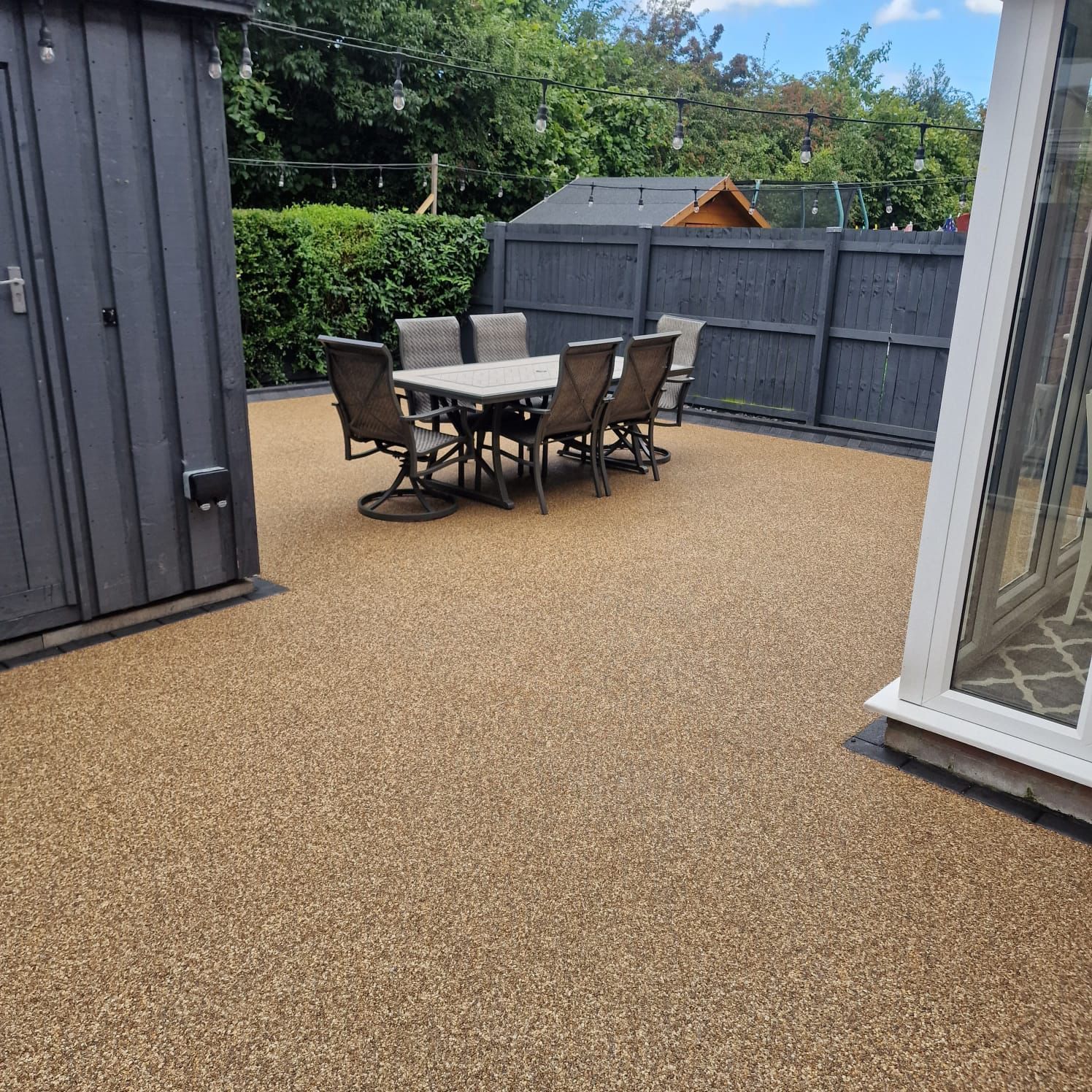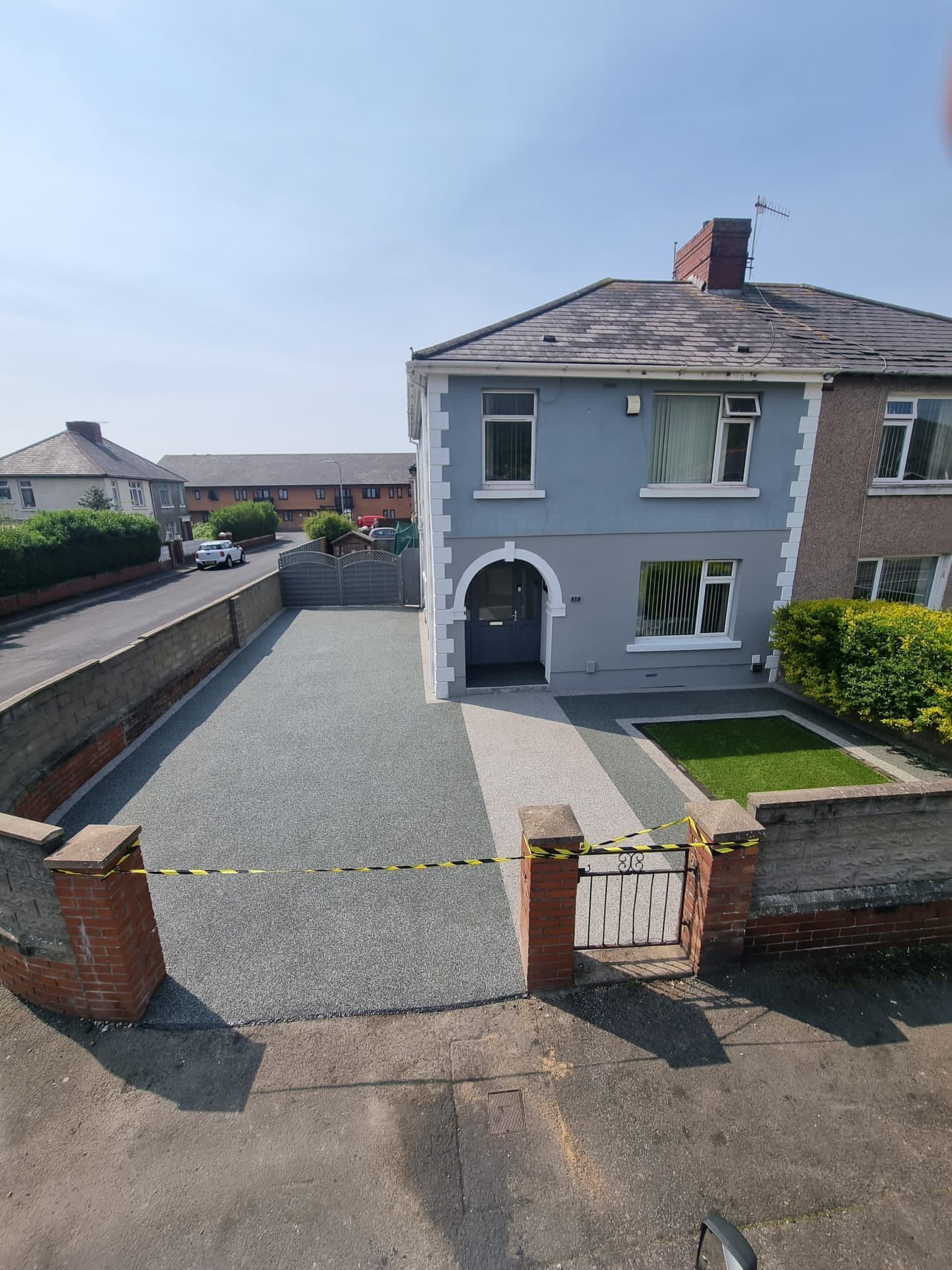Block Paving Driveway Versus Asphalt: Which One is Right for You?
Block Paving Driveway Versus Asphalt: Which One is Right for You in Essex?
When it comes to enhancing the kerb appeal and functionality of your home, few features make as much impact as your driveway. Choosing the right material for your driveway isn’t just a practical decision it’s a long term investment in the durability, aesthetics, and overall value of your property. Two of the most popular options are block paving and asphalt. Both have unique advantages and drawbacks, so how do you decide which is best for your home?
In this blog post, we’ll dive deep into the key differences, pros and cons, and factors to consider when choosing between block paving and asphalt. By the end, you’ll have a clear understanding of which driveway material aligns best with your needs.
Introduction: The Importance of the Right Driveway Material
A driveway does more than provide a space to park your car. It sets the tone for your home’s exterior and can influence everything from its aesthetic appeal to its resale value. Block paving and asphalt are two distinct options that cater to different preferences and budgets.
Block paving driveways, made of individual bricks or pavers, offer unparalleled customization and a premium look. On the other hand, asphalt, a mixture of aggregates and bitumen, is known for its affordability and sleek finish. Deciding between these two materials requires weighing several factors, including budget, maintenance, durability, and style.
What is Block Paving?
Block paving involves laying individual bricks or blocks, often made from concrete or clay, in specific patterns. This type of driveway is known for its bespoke designs and durability.
Advantages of Block Paving
Customizable Designs
Block paving offers an extensive range of colours, sizes, and patterns, allowing you to create a unique look that complements your home. From herringbone to basket weave, the possibilities are endless.
Durability and Longevity
Properly installed block paving can last 20-30 years, making it one of the most durable driveway options. It can withstand heavy loads without cracking, making it ideal for homes with multiple vehicles.
Easy Repairs
If a single block is damaged or stained, it can be easily replaced without disturbing the rest of the driveway. This feature makes block paving cost-effective in the long term.
Weather Resistance
Block paving is less likely to crack in freezing weather, as its design allows for slight movement, which prevents damage from freeze-thaw cycles.
Premium Appearance
Block paving’s polished and tailored look can enhance the curb appeal of any property, potentially increasing its value.
Disadvantages of Block Paving
Higher Initial Cost
The materials and labour required for block paving make it more expensive to install than asphalt.
Weed and Moss Growth
The joints between the blocks can attract weeds and moss if not properly maintained.
Time-Consuming Installation
Installing a block paving driveway is labour-intensive, often taking longer than asphalt installation.
What is Asphalt?
Asphalt driveways are made from a mix of aggregates like sand, stone, and gravel bound together with bitumen. This material is poured and compacted to create a smooth, hard surface.
Advantages of Asphalt
Affordability
Asphalt driveways are more cost-effective to install than block paving, making them a popular choice for homeowners on a budget.
Quick Installation
Asphalt can be laid and ready for use within a few days, making it a faster option compared to block paving.
Smooth Finish
Asphalt provides a sleek, uniform look that works well for modern and minimalist home designs.
Low Maintenance
While asphalt does require periodic sealing, it’s generally easy to maintain. Small cracks can be repaired with filler, and the entire surface can be resealed to extend its lifespan.
Durability
With proper maintenance, an asphalt driveway can last 15-20 years, handling regular vehicle traffic with ease.
Disadvantages of Asphalt
Limited Design Options
Unlike block paving, asphalt comes in a standard black finish, with few customization options available.
Susceptibility to Weather Damage
Asphalt is more prone to cracking in freezing weather and softening in extreme heat, which can reduce its lifespan.
Shorter Lifespan
Compared to block paving, asphalt generally has a shorter lifespan and may require resurfacing or replacement sooner.
Frequent Sealing
To maintain its appearance and prevent cracking, asphalt driveways require resealing every 2-3 years.
Factors to Consider When Choosing
- Budget
Asphalt is the more budget-friendly option for initial installation. However, block paving may offer better long-term value due to its durability and ease of repair.
- Aesthetic Preferences
For homeowners looking for a personalized, high-end look, block paving is the clear winner. Asphalt, while sleek, lacks the versatility to match various design styles.
- Maintenance Commitment
Block paving requires weeding and sealing to maintain its appearance. Asphalt is easier to clean but requires periodic resealing.
- Longevity
If you’re looking for a driveway that will last decades with minimal repairs, block paving is the better choice.
- Climate and Weather
In areas with harsh winters or extreme heat, block paving is less susceptible to weather-related damage compared to asphalt.
Frequently Asked Questions
1. Which is cheaper in the long run: block paving or asphalt?
While asphalt is cheaper to install, block paving often proves more cost-effective over time due to its longer lifespan and ease of repair.
2. Can block paving handle heavy vehicles?
Yes, block paving is highly durable and can support the weight of heavy vehicles if properly installed.
3. How often does asphalt need resealing?
Asphalt driveways should be resealed every 2-3 years to maintain their durability and appearance.
4. Does block paving require special cleaning?
Block paving can be cleaned with a power washer, but regular sweeping and resealing are recommended to prevent weed growth and maintain its look.
5. Which is better for resale value?
Block paving generally offers a higher return on investment due to its premium appearance and longevity.
6. Can I install either driveway myself?
While asphalt requires specialized equipment for installation, block paving can be a DIY project if you have the time and skills. However, professional installation is recommended for the best results.
Conclusion: Block Paving or Asphalt?
The choice between block paving and asphalt ultimately comes down to your priorities. If you value customization, durability, and long-term savings, block paving is the superior option. However, if you’re looking for an affordable, quick-to-install solution with a sleek finish, asphalt is a practical choice.
By considering factors like budget, maintenance, aesthetics, and climate, you can select the driveway material that best meets your needs. Whichever option you choose, professional installation and regular maintenance will ensure your driveway remains functional and attractive for years to come.
For further information, Click here to visit our website or call Cambridge Driveways on 01223 656846.
Click here to complete our contact form and see how we can help you with your Driveway requirements.
Key Differences Between Block Paving and Asphalt
| FEATURE | BLOCK PAVING | ASPHALT |
|---|---|---|
| Cost | Higher upfront cost | More affordable upfront |
| Durability | Lasts 20-30 years with proper care | Lasts 15-20 years with maintenance |
| Aesthetic Appeal | Customizable colours and patterns | Standard black finish |
| Installation Time | Longer due to labour-intensive process | Quick and efficient |
| Maintenance | Occasional weeding and resealing | Periodic sealing required |
| Weather Resistance | Excellent in freeze-thaw cycles | Excellent in freeze-thaw cycles |
